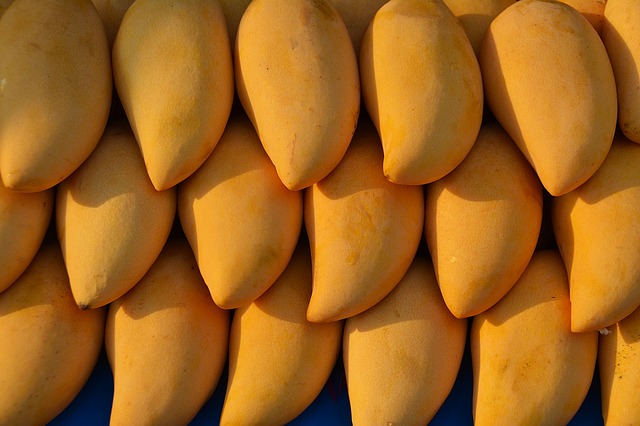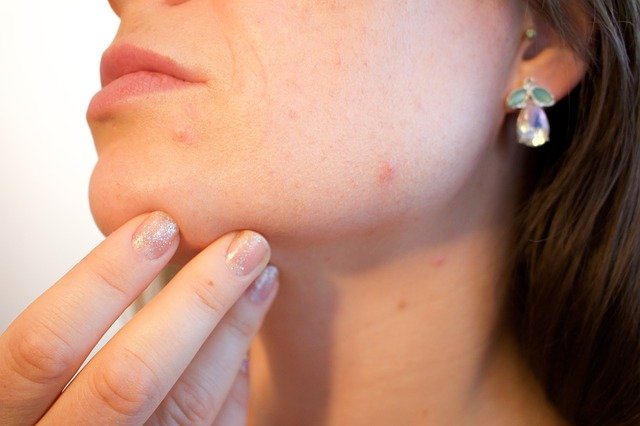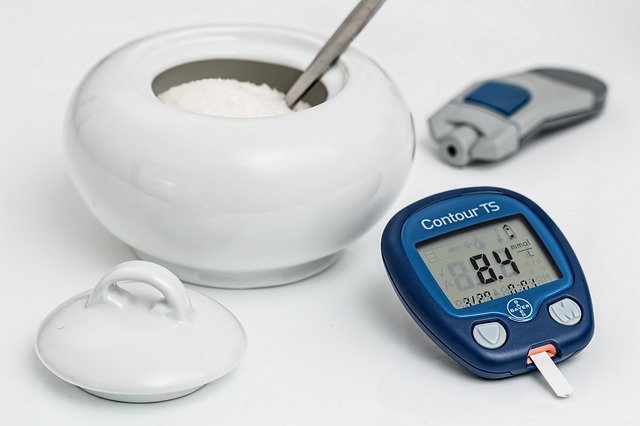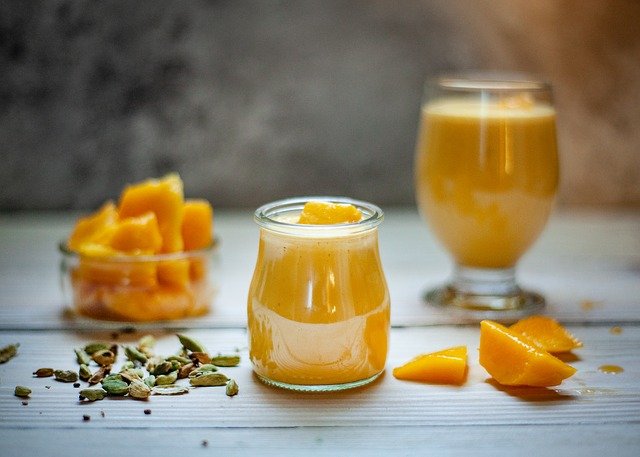
The mango season is nearing an end right now and if for any reason you’ve avoided mangos like a plague then this article is just for you. We often hear a lot of myths about eating mangos and these can’t get any more ridiculous so now’s the time to bust these myths:
- Mangos cause acne-

If you’re someone who suffers with acne then you must have constantly been told to not eat mangos as they increase your body heat and hence cause more boils/pimples. So far there hasn’t been any strong evidence regarding these claims. Acne is usually caused due to other factors like genetics, oily skin, hormonal imbalance, high glycaemic index diet etc so these factors should first be considered before blaming one food for causing acne.
Contrary to what most people say, mango has a low glycaemic score (51) and hence does not affect your blood sugars extensively. However anything in excess can be problematic so limit your mango consumption to 1 or 2 per day and you’re good to go.
| GI | GI Rating | Blood glucose levels | Examples |
| High | >70 | Increases rapidly | White carbs, potatoes, fruit juices |
| Moderate | 55-69 | Increases moderately | Brown rice, oatmeal |
| Low | <55 | Increases slowly | apples, nuts, lentils |
- Mangos make you fat
To bust this myth it’s easier to refer to its nutrition info:
| Mangifera indica L. Nutrition value per 100 g | |
|---|---|
| Energy | 60 Kcal |
| Fruit composition | Quantity |
| Carbohydrates | 14.98 g |
| Protein | 0.82 g |
| Fat | 0.38 g |
| Fiber | 1.6 g |
| Vitamins | |
| Vitamin C | 36.4 mg |
| Vitamin E | 1.12 mg |
| Vitamin A | 1082 IU |
| Niacin (vit B3) | 669 µg |
| Pantothenic acid (vit B5) | 160 µg |
| Pyridoxine (vit B6) | 119 µg |
| Riboflavin (vit B2) | 38 µg |
| Thiamin (vit B1) | 28 µg |
| Folates | 43 µg |
| Vitamin K | 4.2 µg |
| Minerals | |
| Potassium | 168 mg |
| Phosphorus | 14 mg |
| Calcium | 11 mg |
| Magnesium | 10 mg |
| Sodium | 1 mg |
| Copper | 110 µg |
| Iron | 160 µg |
| Manganese | 27 µg |
| Zinc | 90 µg |
| Carotenoids | |
| β−Carotene | 445 µg |
| α−Carotene | 17 µg |
An average mango is around 150-200g and provides approximately 150 calories. Eating mango as a dessert or a snack will in no way make you fat as long as you’re within your calorie requirements.
- Diabetic patients cannot eat mangos

This is another common statement that is thrown around carelessly. As explained earlier, Mangos actually come under low GI foods and do not spike your insulin levels majorly. Besides, mangos are high in fibre, vitamins and antioxidants which help in minimising their impact on blood sugar levels.
Infact, in some studies the bioactive compounds of mangos have actually shown to have anti-diabetic effects. The mango mesocarp and leaf have shown to have hypoglycaemic effects on STZ induced rats. This anti-diabetic effect of mangoes can be due to the presence of polyphenolic acids present that inhibit action of carbohydrate hydrolysing enzymes.
However the key is to not consume too much of anything so 1 mango per day is definitely allowed even if you’re diabetic.
Now that we’ve cleared these doubts, here are 5 scientifically backed reasons behind why you SHOULD eat mangos without any fear:
- Mangos are highly nutritious. If you refer the info above you can see that they’re good source of Vitamin c, A, phosphorus and calcium
- They have great antioxidant properties which means that they help reduce the free radical damage caused in the body
- The phytochemicals present in mangos are said to be anti-inflammatory and play a significant role in chronic inflammatory illnesses
- The bioactive compounds present in mango also have shown anti-cancer properties in certain tumours.
- Mangoes contain mangiferin which is a polyphenol that has great antioxidant, anti- scavenging , anti free-radical & pharmacological properties

Now you have enough reasons to ignore the myths and indulge in this delicious fruit, better late than never.
